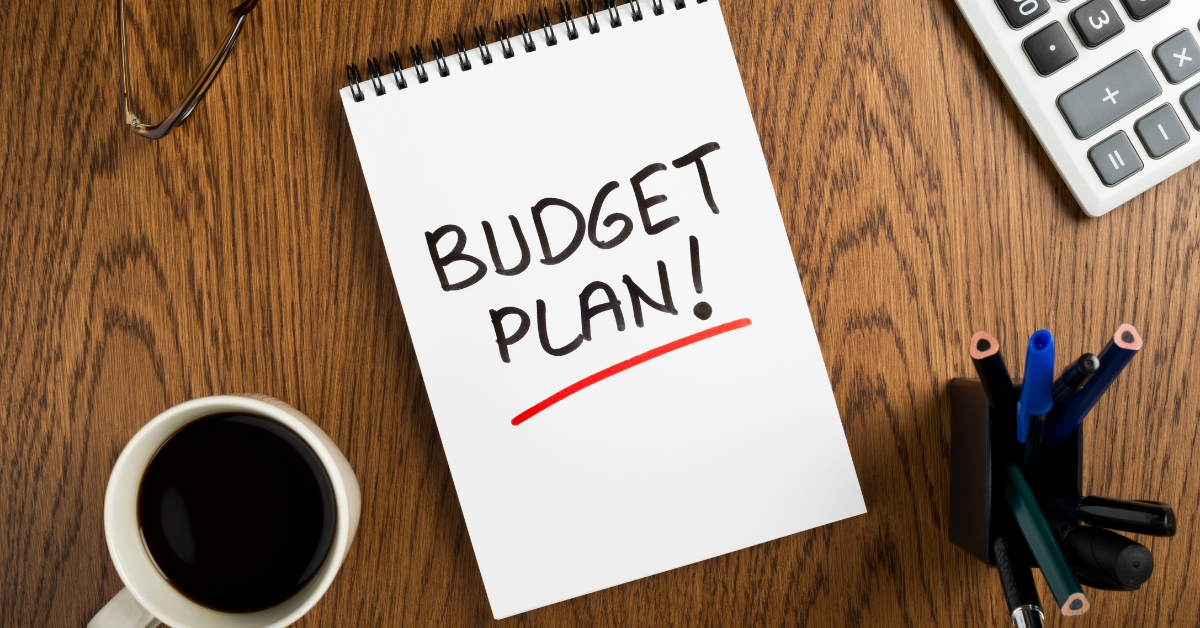If you are considering bankruptcy, it is important to know how to live on a Chapter 13 budget. If you do not live by the budget you submit to the judge, they can dismiss your case, leaving you vulnerable to aggressive collection attempts, foreclosure, and other adverse effects.
To live on a Chapter 13 budget, you must adhere to the court-ordered budget you agree upon. You must cut back on unnecessary spending and pay down your debt as quickly as possible.
However, there is more to it than that. Learn about living on a Chapter 13 budget in this guide with tips and requirements to help you complete your bankruptcy successfully and improve your financial situation after your case.

How Do You Live on a Chapter 13 Budget?
If you plan to file for Chapter 13 Bankruptcy, you need to learn how to live on a budget. At the same time, there are many reasons, like divorce, a failed business, loss of income, or significant inflation in the cost of housing and other necessities, that people choose bankruptcy.
However, many people who file have had trouble budgeting, and making significant lifestyle changes may be challenging.
Despite the reason for your financial worries, you must adhere to the budget approved determined by the court trustee and approved by the judge. Failure to comply will result in a dismissal of your bankruptcy case, subjecting you to adverse action by creditors.
1. Agree to a Budget You Can Afford
After reviewing your financial statements, the case trustee gives you a repayment schedule when you file for Chapter 13. The repayment period is typically three years.
If you make less income, the judge may give you more time for repayment. The longest time a bankruptcy judge may approve is five years. You should ensure that you disclose everything to the court and trustee. You should also be transparent about your spending habits and any expenses you feel you cannot live without.
When you file for bankruptcy, you must provide proof of your finances, including bills, monthly spending reports, housing costs, vehicle payments, credit card statements, and more. The trustee will review all the documentation and suggest a feasible monthly payment to the judge.

On average, the monthly payments are between $500 and $700. However, the court bases the amount on your total debt, what creditors are willing to settle your debts for, and your current income.
If you own a home, you may or may not include that secured debt in your case. So, if your case includes secured debts like mortgage payments and car payments, your monthly repayment figure may be much higher.
If your case does not include these debts, you are responsible for making those payments in addition to the court-approved repayment amount. While the court does have guidelines it follows for the amount you need to pay, if you are unsure whether you can afford to pay it, you should speak to the judge before agreeing because completing the proceeding successfully requires you to make the payments on time for the duration of your case.
2. Make Credit Purchases Before Filing
You will not be able to use credit while going through the process. So, if you need to buy a new vehicle or make other credit purchases, you must do so before filing.
3. Reduce Unnecessary Spending
In almost every case, your Chapter 13 budget will require you to cut back on unnecessary spending and make some sacrifices. You may need to eat like a student instead of splurging on decadent foods like lobster and drink gas station coffee instead of Starbucks.
The court will factor in enough money for your necessities but will not leave you a lot left over for buying extravagant clothing, traveling to exotic destinations, or going out on expensive dates. However, that does not mean you cannot enjoy your life.
There are plenty of cheap dates you can go on to keep your relationship healthy while you are in bankruptcy. You can also shop for gently-used designer clothes at secondhand stores.
4. Follow the Repayment Plan Closely
Many people want to get out of bankruptcy as soon as possible. However, paying your debt early is not a good idea.
When you file for bankruptcy, the trustee negotiates reduced payoffs for the debts included in the case. If you pay your bankruptcy off early, you must pay 100 percent of the money you owe.
5. Listen to Guidance from the Court
During your case, the judge may require you to attend credit counseling. You should follow the advice you receive to pay down debt on the schedule set forth for you. If you do not adhere to the guidance provided to you, the judge may dismiss your case.
The purpose of filing for bankruptcy is to have your debts consolidated and to pay them off according to the judge’s timeline. The court orders people to take classes to better manage income, credit, and debt.
By following the guidance of the court and credit counselor, you should be able to complete your case within the necessary timeframe and have your debt discharged.
6. Pay Unconsolidated Debts On Time
If you have secured debts, you do not include them in your bankruptcy; you are responsible for keeping those accounts in good standing. Failing to make on-time payments on debts not included in your case will leave you susceptible to adverse action by those creditors.
7. Motivate Yourself
When you are changing the way you manage your finances, it helps to have some motivation. There are numerous debt-free motivational quotes by brilliant men and women that you can use to keep yourself on track.

While in bankruptcy, you may feel like you will never reach your financial goals. However, there is a light at the end of the tunnel for individuals who adhere to the Chapter 13 budget set forth by the court.
What is Chapter 13 Bankruptcy?
Chapter 13 is a type of bankruptcy that allows you to stop collection efforts, including foreclosures, while you work toward paying off your debts. Only individuals with $2.75 million or less in total debt may use Chapter 13.
Before President Joe Biden signed the Bankruptcy Threshold Adjustment and Technical Corrections Act in June of 2022, the threshold for Chapter 13 proceedings was limited to $465,275 in unsecured and $1,395,275 in secured debt.
The new increased threshold does not include separate categories for secured and unsecured debt. So, anyone with less than $2.75 million in either type of debt may use this form of bankruptcy to consolidate debts and pay them off over three to five years.
Why is It Important to Live Within a Chapter 13 Budget?
No matter what your reason is for filing bankruptcy, the court only gives you three to five years to pay off your debts. Even after you pay off your creditors, you may have to deal with the consequences of bankruptcy for many years.
So, you want to ensure that you follow the court guidelines for repayment carefully, so you can move on with your life as quickly as possible while still receiving the benefits of filing, like reduced payoffs and protection against collection attempts by the creditors you owe.
Final Advice on How to Live on a Chapter 13 Budget
Filing bankruptcy is unavoidable for some people. If you file one of these cases, living on a Chapter 13 budget is a requirement. Doing so may be challenging for some people relying on credit for many years to make ends meet.
However, adhering to your court-ordered repayment plan can free you from debt payments and mounting interest that cause unnecessary stress. If you choose Chapter 13, it is best to follow the court’s repayment plan.
For help with other financial topics, like how to live on a small budget, read the other guides on our site.
